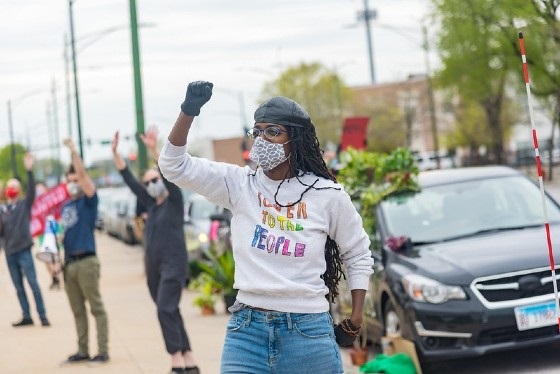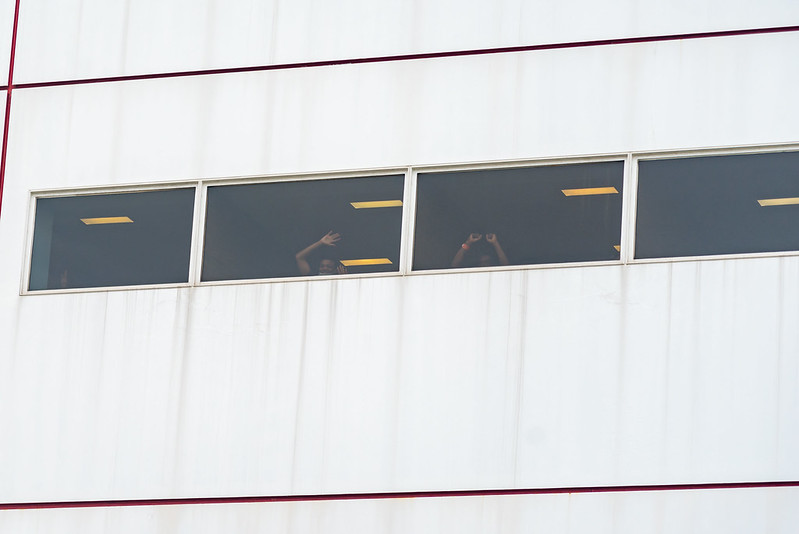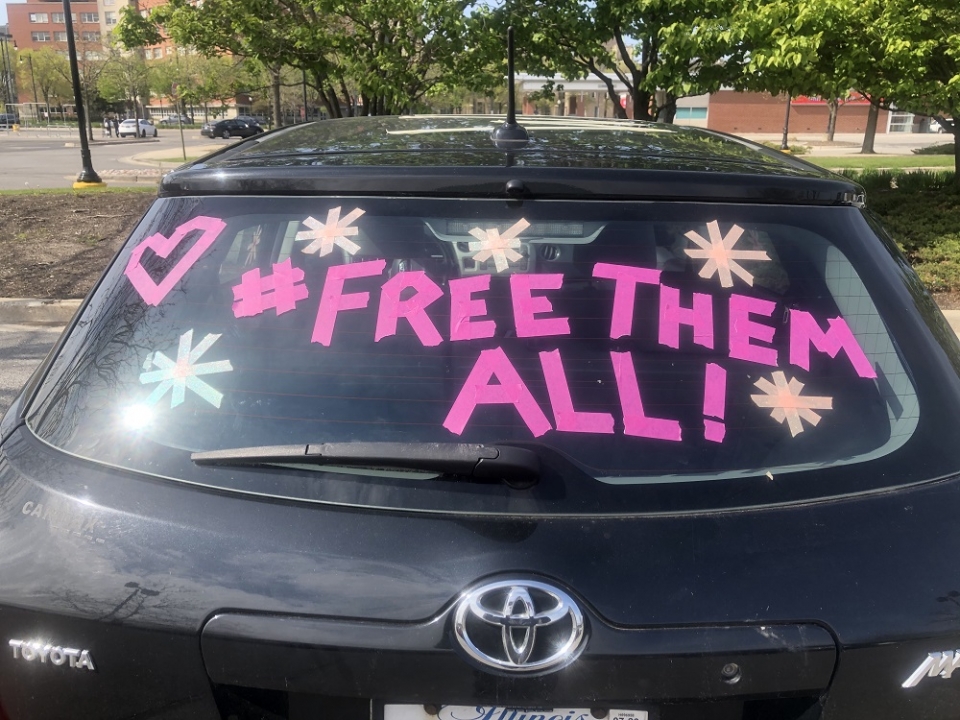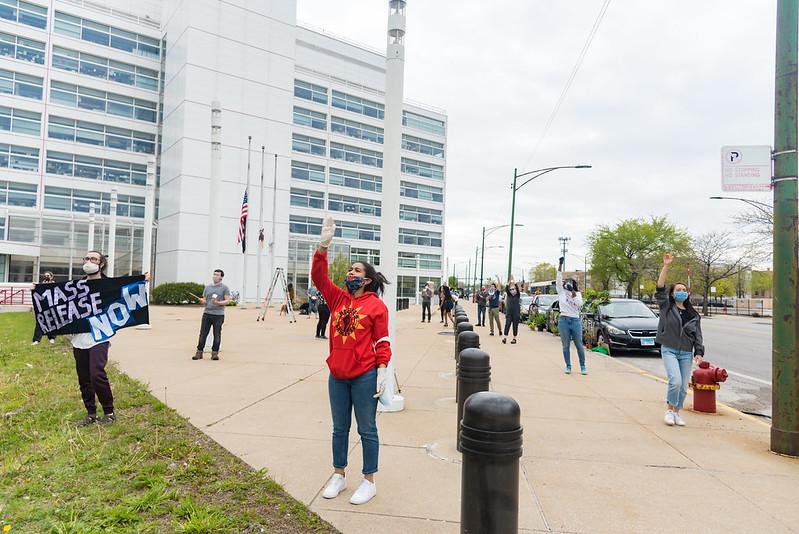
#FreeOurYouth block party and car rally in Chicago, demanding the immediate release from young people incarcerated at the Juvenile Temporary Detention Center. Sarah-Ji / @loveandstrugglephotos
Around the country, communities are demanding the mass release of people from prisons, jails, and detention centers to protect the health and human rights of people in this pandemic. Carceral facilities are always unsafe, because incarceration is unhealthy for everyone. But right now, these institutions—with no possibility of social distancing in close quarters and a lack of access to adequate health care of personal protective equipment—have become hotspots for spreading the virus.
Tens of thousands of young people in these facilities are among those at risk. There are more than 48,000 children incarcerated in the U.S., all of whom now face a higher risk of contracting COVID-19 because of their confinement. As of May 18, at least 441 young people and 506 staff had tested positive for COVID-19 in U.S. juvenile facilities. Recent news reports indicate that contrary to what was previously thought, children are dying of COVID-19, and those deaths may be undercounted.
Here in Chicago, AFSC has joined with local partners to call for the release of incarcerated youth in this pandemic. Despite the mounting danger to young people, Cook County Presiding Judge Michael Toomin—who oversees juvenile courts in Cook County, where Chicago is located—is actually preventing young people from being released from the juvenile detention center within 30 days, based on his interpretation of a recent state Supreme Court ruling. This unconscionable decision will cost lives.

In spite of calls to release young people from detention and stop new admissions to juvenile detention facilities, nearly 100 youth have been admitted and detained since the start of the pandemic. As of May 15, at least six detained youth and 17 staff have tested positive for COVID-19.
Last week, AFSC—along with Assata’s Daughters, Liberation Library, and For the People Artists Collective—organized a #FreeThemAll block party in front of the Juvenile Temporary Detention Center to protest the judge’s actions, show love and support to the young people in detention, and boost the call to #FreeOurYouth. Practicing social distancing and wearing masks, protesters played music, banged pots and pans, and chanted to attract the attention of the young people inside. They saw us and the messages we carried—written on our cars and on signs: “WE LOVE YOU” and “FREE OUR YOUTH.”
Just as with many aspects of the pandemic, underlying structural inequities in our society have put people of color at greater risk. Of the more than 48,000 young people who are incarcerated in the U.S., 44% are Black—although Black youth make up only 14% of the U.S. population of young people, according to the Department of Justice. Our country’s social and economic investment in locking people up—instead of properly funding health care, education, jobs, and other things that children need to live healthy lives—has fueled this life-threatening situation for incarcerated and detained youth.

“Many of the young people locked in the detention center are there precisely because they have been failed by generations of economic divestment,” says my colleague, Debbie Southorn, AFSC Chicago Peacebuilding Program associate and an organizer of the action. “Watching judges, prosecutors, cops, and mayors all conspire to blame, shame, arrest, and detain young people during COVID—against public health common sense—is just another reminder that it is long past time to #FreeOurYouth.”
Our #FreeOurYouth efforts build on AFSC’s years-long work in Chicago to “uplift the demands of young Black people in our city and young people of color across the country, who want to see—and deserve—more resources for housing, education, and health care (including mental health resources), instead of expanded policing, surveillance, criminalization, and incarceration,” Debbie says.

AFSC has played a key role in helping to coordinate the #NoCopAcademy campaign, which opposed the construction of a new $95 million police academy in Chicago in the wake of over 50 public schools and six mental health clinics in the city closing in recent years. The campaign catalyzed a movement of more than 100 community organizations that pushed for divestment of policing in Chicago, with young people at the helm.
“The rallying cry of #NoCopAcademy is still heard at youth actions and protests today because it has become synonymous with investment in Black and Brown communities, not more money for the cops or the jailers,” Debbie says.
Whether it’s locally here in Chicago, where we spend over 40% of our budget on policing, or on the federal level with over half of the government’s discretionary budget going to the Pentagon, young people have for years been demanding that the government #InvestInUs instead of systems of confinement, control, and violence.
It is crucial that we not forget incarcerated youth during this pandemic. Collectively we must call for their mass release from incarceration and demand investment in what can keep them whole and healthy in the future.